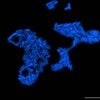
Bacteria have sensors to shut toxin down
Researchers at Rice University and the University of Idaho helped identify a protein that senses and binds to formaldehyde to tell cells that toxic formaldehyde is building up.

Bacteria have sensors to shut toxin down
Researchers at Rice University and the University of Idaho helped identify a protein that senses and binds to formaldehyde to tell cells that toxic formaldehyde is building up.

Pristine quantum criticality found
U.S. and Austrian physicists searching for evidence of quantum criticality in topological materials have found one of the most pristine examples yet observed.

Thin is now in to turn terahertz polarization
Rice lab’s discovery of ‘magic angle’ builds on its ultrathin, highly aligned nanotube films

Demolition of Rice’s historic Abercrombie Engineering Laboratory began on May 17 with the first ceremonial bites taken out of the building’s north face by Rice President David Leebron, Provost Reginald DesRoches and engineering professor Michael Wong.
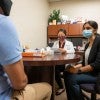
Unconventional Students at Rice 2021: Nithya Gillipelli bridges the gap between languages
In junior high, Nithya Gillipelli fell in love with the Spanish language and Hispanic culture.

Feds back probe of understudied gut nervous system
Rice University neurobiologist Rosa Uribe has won a five-year, $2 million R01 grant from the National Institutes of Health to study how the enteric nervous system develops.
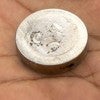
How planets form controls elements essential for life
How a planet comes together has implications for whether it retains the nitrogen, carbon and water that eventually give rise to life.

Rice physicist Stanislav Sazykin dies at 49
Stanislav Sazykin, an associate research professor of physics and astronomy who was highly respected in his field of space science, died suddenly on May 3 at 49. The cause of his death has not yet been determined.

In graphene process, resistance is useful
Lab uses laser-induced graphene process to create micron-scale patterns in photoresist for consumer electronics and more.
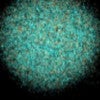
Silver ions hurry up, then wait as they disperse
There’s gold in them thar nanoparticles, and there used to be a lot of silver, too. But much of the silver has leached away, and researchers want to know how.
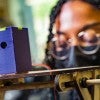
Touchless temperature made simple
Getting around during the pandemic often requires getting your temperature taken to check for COVID-19. A team of seniors at Rice’s Brown School of Engineering wants to make that practice more practical for facilities around the world.

Rice team vying for $1 million Solar Desalination Prize
A Rice team's clever design uses the power of the sun to make fresh water from saltwater, even at night.

Rice’s Walker beams down from space station
Rice alumna Shannon Walker and crewmate Kate Rubins, aboard the International Space Station, joined a conversation with students in Houston, Scotland and Ecuador.

Biochem lab partners win Goldwater Scholarships
Passionate pursuit of research opportunities pays off for Syed Shams and Jim Zhang

Houston flooding polluted reefs more than 100 miles offshore
Flower Garden Banks fouled by runoff from 2017's Harvey and 2016's Tax Day floods, Rice research finds.